What Vegetables Can Dogs Eat?
Find out all about the various vegetables that your pet dog can eat safely. And learn how much to feed them & what vegetables are not suitable for a canine’s health?
Which Vegetables Are Good for Your Dog?
Vegetables are the best friends for both humans and animals. From childhood to old age, we consume them regularly due to the additional health benefits they promote. As humans, we can identify whether we like a particular veggie or not. Animals, on the other hand, cannot express themselves and can be identified by changes in their habits. If you have a dog, don’t forget it and get an idea about what vegetables are for dogs. If you are unaware of the vegetables that can be best for your dogs, browse through the list, we are sharing below. Here we have done the categorization from A to Z so that you can easily know whether the particular vegetable you are choosing for your dog is safe or not. Let’s get started!
Why do you feed vegetables to your dog?
Feeding your dog with vegetables is one of the best ways to keep them healthy. It also reduces the cost of purchasing pet products and helps them to enjoy a variety of organic food. The vegetables are enriched with nutrients and hence contribute to a balanced diet. These are also rich in antioxidants, minerals, fibers, enzymes, and phytonutrients, which are not there in meat. All these are really very essential for maintaining the overall health of a dog.
A TO Z Vegetables Dictionary For Dog’s
A – B – C – D – E – F – G – H – I – J – K – L – M – N – O – P – Q – R – S – T – U – V – W – X – Y – Z
A
Amaranth Leaves
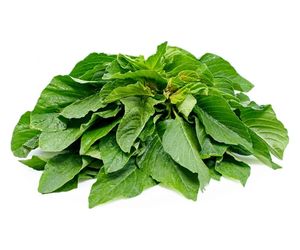
Amaranth leaves are not safe for dogs. All parts of this plant, including leaves, stems, and roots, are toxic to dogs. If you ever notice your dog has consumed amaranth leaves, rinse out their mouths with water and take your dog to a veterinary doctor immediately.
Artichokes
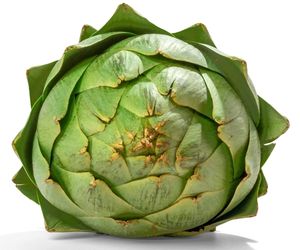
Artichokes are healthy for dogs and a rich source of vitamin C, potassium, folic acid, antioxidants, and niacin. All these essential vitamins and minerals help in preventing illness and support the immunity system, metabolism, and muscle of the dog. Overall, it is a safe choice for dogs, but you need to prepare it well.
Arrowroot
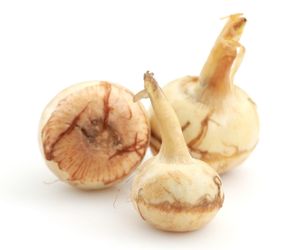
Arrowroot is safe for dogs as it is easy to digest. It is not poisonous and, on the contrary, provides different health benefits. It helps in maintaining gastrointestinal functioning and reduces diarrhea. In most cases, it helps relieve abdominal pain.
Arugula
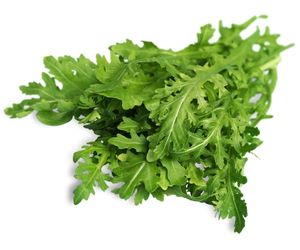
Arugula is safe for dogs. It is a low-calorie snack and is helpful in maintaining the overall weight of the dog. But make sure to feed your dog with it in moderation because high consumption can lead to bloating and diarrhea.
Asparagus

Asparagus is safe for dogs, but be sure not to feed it raw as it is very difficult to digest and can lead to vomiting, diarrhea, and bloating issues. However, well-cooked asparagus, on the other hand, is safe for dogs.
B
Bamboo Shoots
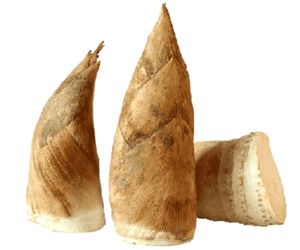
Bamboo shoots are high in nutrients and low in calories, so they are a safe option for dogs. If your dog is overweight and suffering from diabetes or is on a strict pancreatic diet, you can easily choose it as it helps them relieve the same condition.
Beans

Beans are safe for dogs as they are enriched with fiber and protein. These are high in calories, so they cannot be fed to dogs in high quantities. Also, some beans are not safe for dogs, so ask the veterinary doctor whether the breed you have is susceptible to the particular bean or not.
Belgian Endive
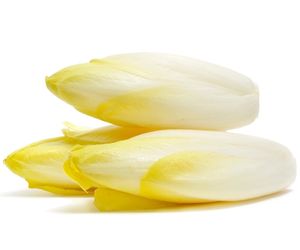
Belgian endive is a safe vegetable for dogs and helps them get multiple health benefits. But be sure to cook it properly before serving them. The raw form can be dangerous and cause gastrointestinal issues, so don’t feed your dog with it. Also, you can steam it for a while and mix it with regular dog food to serve your dog.
Bitter Melon
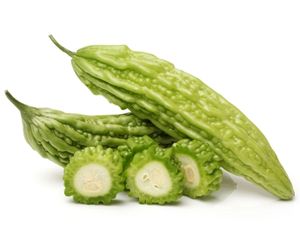
Bitter melon or Bitter Gourd is enriched with different proteins and vitamins. Dogs can eat bitter melon safely. But make sure to feed them in moderation only because high quantities can lead to vomiting, diarrhea, vaginal bleeding, liver damage, and other major problems.
Bok Choy
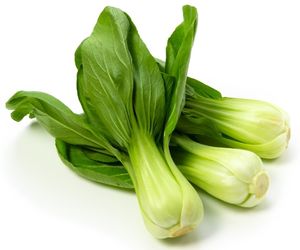
Bok choy can be or not be safe for dogs. It entirely depends on the breed you have and also the dietary habits your dog has adapted to. On the contrary, these are safe in moderation only, as high quantities can cause an allergic reaction which leads to vomiting and diarrhea. Also, always cut it into small pieces before serving.
Broadbeans (Fava Beans)
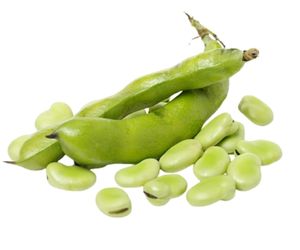
Broad beans or fava beans are not safe for dogs. These have a compound known as phytohaemagglutinin, which is toxic to dogs at higher levels. Also, its consumption can lead to gastrointestinal issues, vomiting, and even death. Always ask the veterinary doctor if you wish to feed them that.
Broccoli

Broccoli is a nutritious option for dogs if it is fed to them without any additional seasoning or oil. It contributes to a healthy immune system and helps them fight different diseases. But it is not safe in high quantities as it contains isothiocyanates which can cause gastric irritation in dogs.
Brussel Sprouts
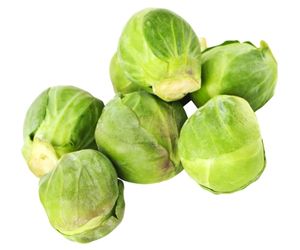
Brussel sprouts may or may not be a safe option for dogs. High consumption of Brussels sprouts leads to an upset stomach and diarrhea. It will also cause flatulence due to the presence of a chemical known as isothiocyanate. But according to research, in smaller quantities, these are safe and help maintain a healthy digestive system.
Beets

Beets are safe for dogs in moderation only. These have multiple beneficial micronutrients like manganese, folate, fiber, vitamin C, and potassium which contribute to a healthy immune system and help them to fight different diseases. But in high quantities, these are not safe because they can lead to diarrhea, gastric irritation, stomach pain, and vomiting due to the presence of acid in them.
Butternut Squash
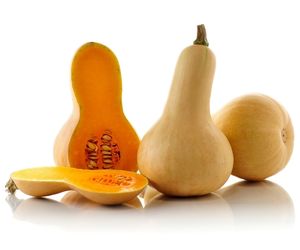
Butternut squash is high in potassium and provides great benefits to the kidneys and muscles of dogs. But make sure to remove the seeds before feeding them because these can be dangerous. Also, cook it because on cooking it will become soft, so it can be digested easily.
Bell Pepper

Dogs can consume bell peppers as they contain necessary vitamins and nutrients that are good for their health. Although the red variety is the most nutritious, all types of bell peppers are safe for dogs to consume. Peppers are high in vitamins A, E, B6, and lutein, and they are excellent sources of vitamin C and beta-carotene, both of which are antioxidants that are essential for a dog’s immune system to function properly. However, make careful to remove the seeds from the bell pepper before feeding it.
Bottle Gourd

You can give your dog bottle gourd as it is a wonderful source of fibre. Cooked bottle gourd is an excellent dog food because it is easy for dogs to digest. Bottle gourd is an excellent source of potassium and Vitamin C. Bottle gourd is one of the lowest-calorie vegetables, with only 14 calories per 100 grams.
C
Cabbage

Cabbage is a great option for dogs. It is enriched with important vitamins like B6, B12, vitamin K, and vitamin C and provides different health benefits. It has some essential minerals, including copper, potassium, and manganese, which contribute to a healthier immune system and promote proper liver functioning.
Carrot

Carrots are among the best low-calorie vegetables available and are high in fiber. It has beta carotene, which produces vitamin A and promotes different health benefits. Overall, it is a safe option for dogs. But make sure to make up no more than 10% of the dog’s daily calorie intake because high quantities can lead to bloating issues and put the dog at risk for cavities.
Cassava

Cassava may or may not be a safe option for dogs. These are highly digestible in dried form, but still, make sure to feed them in a moderate quantity only. However, these contain cyanogenic glycosides, which have a fatal cyanide poisoning effect and lead to death. So be sure whether you want to feed your dog with it or not.
Cauliflower

Cauliflower is the best vegetable and is enriched with antioxidants and vitamins that help dogs maintain the proper immunity system. It is also helpful in reducing inflammation and, in older pets, treats arthritis. It is high in fiber, so it supports digestive health. But high quantities are not safe, and it can lead to an upset stomach.
Celeriac
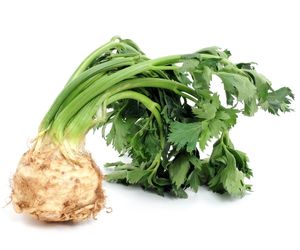
Celeriac, also known as celery root, is a safe option for dogs if it is cooked properly. Also, because it is high in carbohydrates and can cause bloating, feed in small amounts. Furthermore, it is a great source of vitamin K, minerals like phosphorus, calcium, copper, iron, and magnesium, which add some additional health benefits. Also, these are responsible for maintaining a better immunity system.
Celery

Celery is safe for dogs for multiple reasons. It is helpful in freshening up the dog’s breath and is also very helpful in maintaining a healthy lifestyle. But high quantities can lead to gastrointestinal issues, so make sure to feed it to them in moderate quantities only.
Chayote
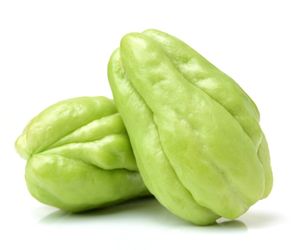
Chayote is a safe option for dogs and can be fed in moderation without any problems. But you have to understand the breed you are having. It belongs to the square family, and sometimes some breeds are not susceptible to it. All the parts of this vegetable are edible but in moderate quantity only.
Chicory (Curly Endive)
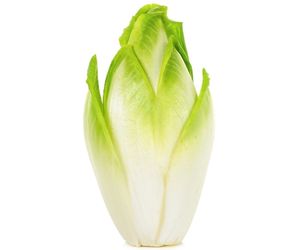
Chicory or Curly Endive is a safe option for dogs. These have 90% water, so help your dog stay hydrated. But feed in an adequate quantity because high quantities can lead to bloating issues and gastric irritation.
Collards
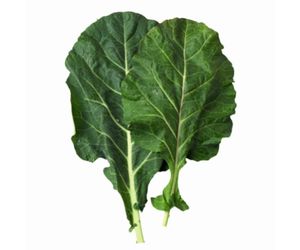
Collards are safe for dogs and are known to be a nutritional powerhouse. These have a great number of different vitamins, along with folate and riboflavin. These are helpful in maintaining the digestive system of a dog and, after consumption, let them feel full for a longer duration. But feed your dog with cooked collard greens only because the raw form is indigestible and leads to an upset stomach.
Corn

Corn is a safe option for dogs. Keep the quantity very low because high quantities can lead to bloating issues. Also, it is not easily digestible, so be sure about the quantity.
Crookneck
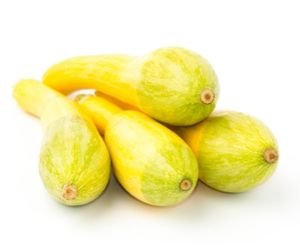
Crookneck is the best vegetable to feed dogs. It has a number of health benefits, including maintaining a healthy diet and promoting a better immune system. But do not add any additional seasoning while preparing it because it can be toxic for the pet.
Cucumber
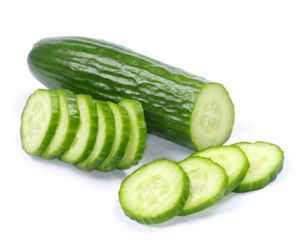
Likewise, for humans, cucumbers are also safe for pets. These are helpful in maintaining hydration and are a low-calorie snack for dogs. High quantities are not advisable in any case, so always feed it in a very low quantity and do not add any seasoning to it.
D
Daikon
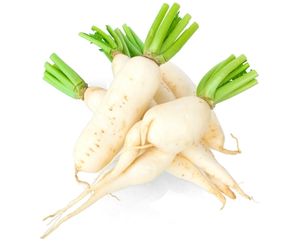
Daikon is one of the vegetables that have plenty of vitamins and minerals which are healthy for dogs. Vitamin C, potassium, and fiber are also there to support the energy level, digestion, and immunity system of your dog. But feed your dog with daikon in moderation and quantity only. In high quantities, it can lead to bloating and diarrhea.
Dandelion Greens
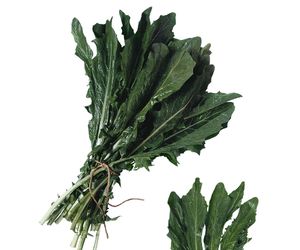
Dandelion greens are safe for dogs and are known as the perfect plant medicine. These are known to improve liver functioning and digestion. These are non-toxic and are a great food for dogs. A moderate amount is safe for dogs, but a high quantity can make them suffer from gastric issues.
E
Edamame, Soybeans
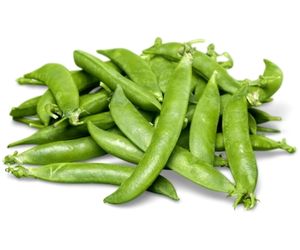
Edamame or soybeans may or may not be safe for dogs. However, these are good sources of fiber, protein, calcium, Omega 3 fatty acids, and vitamin C. But being soy, there are some common allergies for dogs. Always cook it properly without any additional seasoning before feeding it to your dog. Make sure to keep the quantity less than 10% of their daily calorie intake because high quantities lead to gastric problems.
Eggplant

Eggplant is not poisonous and is a safe choice for dogs. But the flavor is not so good in raw form, so we suggest you bake or roast it before serving it to them. Don’t add any additional seasoning because it can lead to bloating and can be toxic to dogs. Always cut it into bite-sized pieces before serving them.
F
Fennel

Fennel is a safe option for dogs. But it is not advisable to feed them in higher quantities and with additional seasonings because it can lead to skin reaction, cross-reaction, and sun poisoning. Always ask the veterinary doctor whether it is safe for the dog breed you have or not.
Fiddleheads
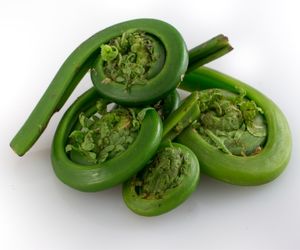
Fiddleheads are safe for dogs but in very small quantities. You cannot integrate it on a regular basis because it can lead to digestive issues if fed in high quantities. Also, do not feed raw fiddleheads to your dog because they are slightly toxic and can cause a variety of health issues.
G
Ginger Root
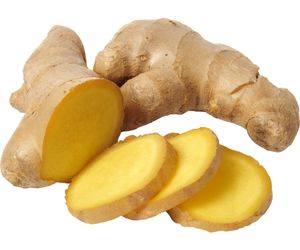
Ginger root in a moderate amount is safe for dogs. It is enriched with many antioxidants which promote blood circulation, treat gastrointestinal issues and motion sickness. It has anti-inflammatory properties as well, which help dogs fight arthritis. But high quantities can have adverse effects, so don’t go for high quantities in the case of dogs.
H
Horseradish
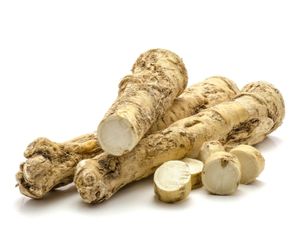
Horseradish is a safe option for dogs, but make sure not to integrate it on a regular basis. Some dogs are not fond of enjoying spicy food, and in that case, it can lead to irritation of the mouth, gastrointestinal irritation, throat and digestive system issues, and so on. It is a suggestion. Ask the veterinary doctor about the dietary habits of the breed you have.
J
Jicama
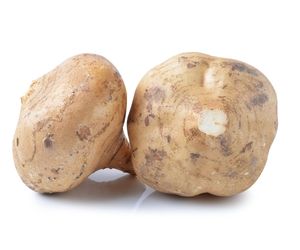
Jicama is not a safe option for dogs in any case. On the contrary, it is full of nutrients, but it can lead to digestive system problems as the skin, stem, leaves, and seeds are poisonous, so it is not advisable to feed a dog with it.
K
Kale

Kale is not a safe option for dogs, so always keep it away from them. It can lead to kidney and bladder stones due to being high in calcium oxalate. But if you want, you can add them in moderation after proper cooking only and mix them up with the diet you are serving them with.
Kohlrabi
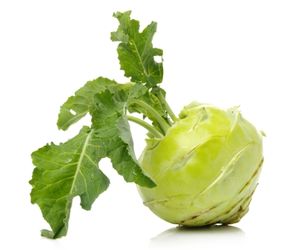
Dogs can eat Kohlrabi safely. It is packed with phosphorus, calcium, folate, vitamin B6, and vitamin C, which add to a healthy diet. Always peel the outer skin and then cook it properly before feeding the dog. But know about the quantity because some dogs are not fond of having it, and, in that case, it leads to bloating behavioral changes and gastric irritation.
L
Leeks
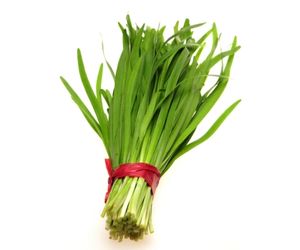
Leeks are not safe for dogs. This belongs to the Allium family, which also includes garlic, onion, and chives, which are not safe for dogs. This can cause oxidative damage to the RBC, and abdominal pain, vomiting, and diarrhea are also accompanied by it.
Lettuce

Lettuce is a safe option for dogs. It has 90% water, so it helps a dog feel hydrated all the time. These are non-toxic and can be added to a dog’s diet in a moderate quantity only. Some breeds are not susceptible to it. In that case, have a word with the veteran regarding it.
M
Mushrooms

Mushroom species that are suitable for humans are suitable for dogs as well. But before feeding the dogs, cook the mushrooms properly. Some specific mushroom varieties can cause upset stomachs, so understand whether the variety you are choosing is safe for dogs or not. Within 15 minutes, the symptoms will be visible, and you need to approach the veteran immediately.
Mustard Greens
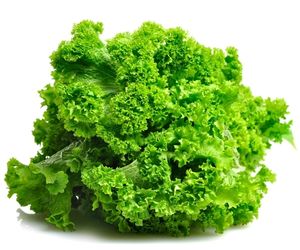
Mustard greens are a safe option for dogs. These are a good source of vitamin A and vitamin C, which means that they contribute to the overall functioning of a dog’s body. But high quantities are not advisable because this can cause some allergic reactions and cross-reactions, which lead to some other problems.
O
Okra

Okra is safe for dogs and is enriched with vitamin B, vitamin C, magnesium, potassium, calcium, and folic acid. These are responsible for maintaining a healthy immune system for the dog and also enhancing its metabolism rate. These are also helpful in strengthening muscles, bones, and nerves. But in high quantities and in raw form, it is not suggested because it can lead to inflammation due to the presence of solanine in it.
Onions

Onions are toxic to dogs, so do not feed your dog with those. If your dog has consumed an onion, you will be able to notice it within a while. The symptoms can be noticed with their changed behavior, bloating, and diarrhea.
P
Parsnip
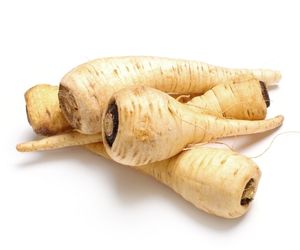
Parsnips are a safe option for dogs. It adds to a balanced meal as it is a good source of protein as well. Always chop it finely and sprinkle a little on the top of the dinner bowl of the dog.
Peas

Peas are safe for dogs. These are enriched with several vitamins, minerals, and proteins, along with some fiber. These can be fed to dogs in frozen and fresh forms. But caned forms are not suggested. Also, do not feed in high quantities, as gas issues are very common after it.
Pepper

Pepper is safe for dogs in very small quantities. High quantities are not advisable because they can cause an upset stomach and, in most cases, lead to diarrhea and vomiting. With some dogs, this can be revealed with some behavioral changes.
Potato

Potatoes are a safe option for dogs, but only if they are baked or boiled. In raw form, it has solanine, which is a toxic compound for dogs. Do not add any additional seasoning to it when preparing it for dogs.
Pumpkin

Pumpkin is a safe vegetable for dogs, along with its seeds. A person can feed their dog pumpkin in cooked or raw form as per their convenience. But do not add any additional seasoning because it can lead to gastric irritation.
R
Radicchio
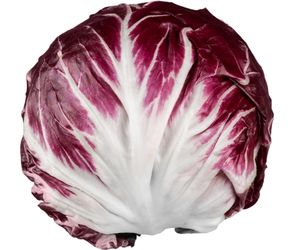
Radicchio is a safe option for dogs as it is packed with different nutrients and vitamins, including fiber. But make sure to feed them in adequate quantities because high quantities can lead to bloating and vomiting.
Radishes
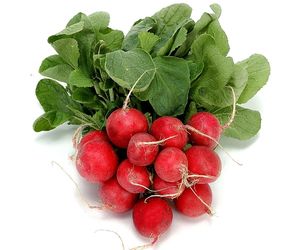
Radishes are safe for dogs in moderate amounts only. These are enriched with potassium, fiber, and vitamin C. These are non-toxic but in high quantities can cause gas. Also, some breeds are allergic to it, so ask the doctor about the dietary habits of the breed you have.
Rutabaga
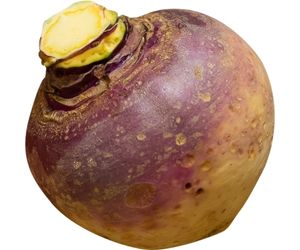
Rutabaga is among the healthier vegetables available for dogs. It offers different health benefits to dogs, like supporting the digestive system, preventing cancer, boosting the immunity system, and muscle health. Always wash it and peel it before serving it to the dog.
Rooty Vegetables
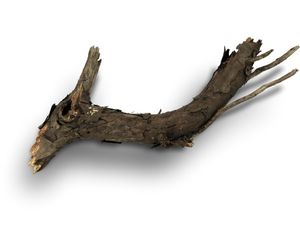
Rooty vegetables are a safe option for dogs, including sweet potatoes, parsnips, beets, carrots, and so on. These are statutory and have high sugar content, so they can be fed to dogs in moderation only. If you notice any sudden change in their behavior or they suffer from any gastric irritation after its consumption, approach the veterinary doctor immediately.
S
Salsify (Oyster Plant)
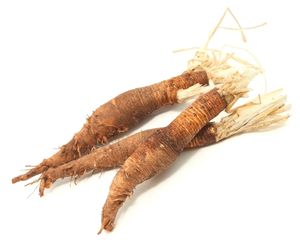
Salsify, also known as an oyster plant, is not safe for dogs. It contains irritating sap, which can hurt the dog and can cause mouth irritation. If your dog has consumed it, unfortunately, rinse its mouth with water and approach the veterinary doctor immediately.
Shallots
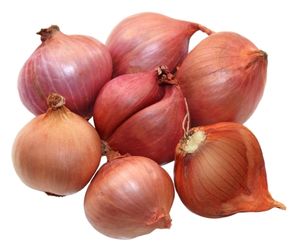
Shallots are not safe for dogs. These are toxic and can lead to gastric irritation. According to research, if a dog has ingested more than 0.5 percent of a toxic substance, it can lead to toxicity, but it is important to take care because the digestive system is quite sensitive in the case of dogs.
Snow Peas
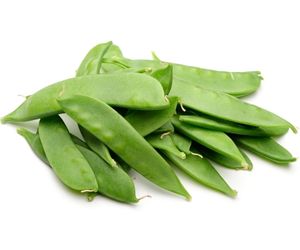
Snow peas are safe for dogs as they have different vitamins and nutrients, which are essential for maintaining the overall functioning of a dog’s body. Only frozen and fresh forms are recommended but do not go for canned peas.
Sorrel (Dock)
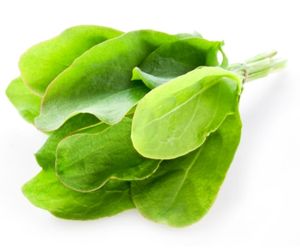
Sorrel is not a safe option for dogs as the compounds available in it are toxic. Make sure not to feed your dog with it, and if they have consumed it, approach the veterinary doctor immediately and rinse their mouth with water.
Spaghetti Squash
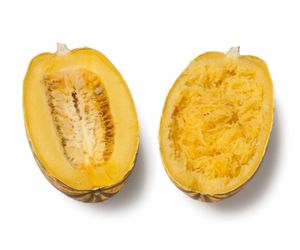
Spaghetti Squash is a safe option for dogs. It is packed with some essential vitamins and nutrients that support the overall health of the dog and improve their vision, muscles, immune system, and more.
Spinach

Spinach is a safe option for dogs. It can be fed to dogs in frozen form only. High quantities are not suggested because they are high in oxalic acid, which blocks the body’s ability to absorb calcium and leads to kidney damage.
Squash, Butternut
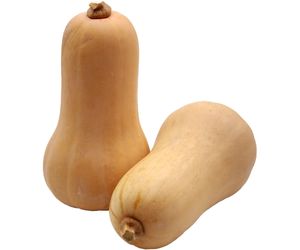
Squash and butternut are safe for dogs and have great benefits for the kidneys, nerves, and muscles of dogs. Before feeding it to dogs, remove the seeds because they can cause choking hazards and lead to gastrointestinal issues.
Sugar Snap Peas
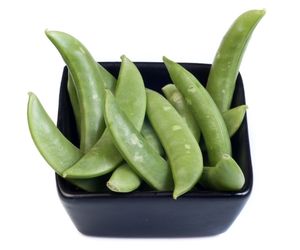
Sugar snap peas are safe for dogs. These are enriched with some essential nutrients and vitamins. Only frozen and fresh forms are recommended for dogs, not the canned ones. Dogs who eat canned peas should experience bloating and gastrointestinal problems.
Sweet Potato

Sweet potato is a safe option for dogs when you are cooking it for them. In raw form, it is not a safe option as it is very difficult to chew and leads to gastrointestinal issues. In most cases, it causes intestinal blockage.
Swiss Chard
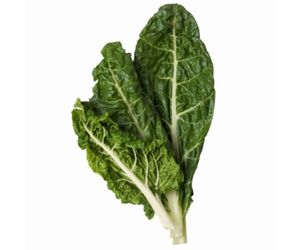
Swiss Chard is a safe option for dogs and is packed with different vitamins, including vitamin A, vitamin K, and vitamin C, along with fiber. A large amount of this vegetable is not recommended as it can lead to digestion issues along with bloating.
T
Tomatillo
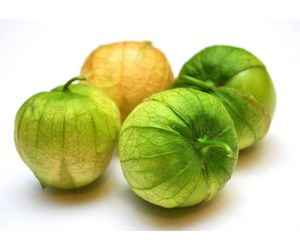
Tomatillo is not a safe option for dogs as it contains xylitol, which is extremely toxic and can cause hypoglycemia in dogs. It should be avoided in the case of dogs to save them from unnecessary health issues.
Tomato

Tomatoes may or may not be the best vegetable for dogs as they contain tomatine, which is an alkaloid and can be fatal to dogs. Also, these are considered to be non-toxic if fed in ripened form only. But only in moderation are these safe for dogs.
Turnip
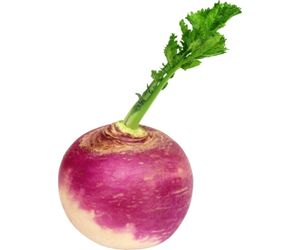
Turnip is a healthy vegetable for dogs, having vitamin C and B6 content along with magnesium and folic acid. These are responsible for boosting dogs’ metabolisms and supporting a healthy nervous system. It also helped them fight kidney diseases and maintain kidney function.
W
Watercress
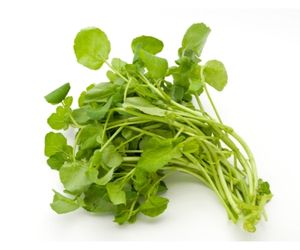
Watercress is not a safe option for dogs as it is toxic. It is responsible for causing kidney and thyroid damage in dogs if fed to them. If your dog has consumed it, it may suffer from vomiting, nausea, and diarrhea, but it is a suggestion that you approach the veterinary doctor immediately.
Y
Yams / Sweet Potatoes Root
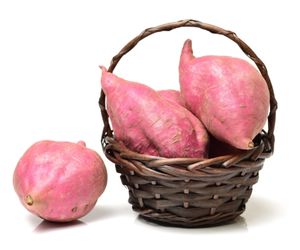
Yams and sweet potatoes are the best vegetables enriched with antioxidants that can be added to a dog’s diet. These have high nutritional content and are low in fat. Also, more than one or two ounces per serving is not recommended for them. However, feeding in raw form is not recommended because it can lead to a choking hazard.
Z
Zucchini

Zucchini is a safe option for dogs. It is packed with antioxidants, which are safe for them. Don’t peel the zucchini before feeding it to the dog, as the peel has a higher amount of antioxidants and other beneficial minerals. It is also low in calories, so it could be the best choice for dogs.
| Vegetable Name’s | Can Dog Eat? (Yes, No, Moderate Quantity) |
|---|---|
| Amaranth Leaves | No |
| Artichokes, Globe | Yes |
| Arrowroot | Yes |
| Arugula | Moderate Quantity |
| Asparagus | Yes |
| Bamboo Shoots | Yes |
| Beans | Yes |
| Belgian Endive | Yes |
| Bitter Melon | Moderate Quantity |
| Bok Choy | Moderate Quantity |
| Broadbeans (Fava Beans) | No |
| Broccoli | Yes |
| Brussel Sprouts | Moderate Quantity |
| Beets | Moderate Quantity |
| Butternut Squash | Yes |
| Bell Pepper | Yes |
| Bottle Gourd | Yes |
| Cabbage | Yes |
| Carrot | Yes |
| Cassava | Moderate Quantity |
| Cauliflower | Yes |
| Celeriac | Yes |
| Celery | Moderate Quantity |
| Chayote | Moderate Quantity |
| Chicory (Curly Endive) | Yes |
| Collards | Yes |
| Corn | Yes |
| Crookneck | Yes |
| Cucumber | Moderate Quantity |
| Daikon | Moderate Quantity |
| Dandelion Greens | Moderate Quantity |
| Edamame, Soybeans | Moderate Quantity |
| Eggplant | Yes |
| Fennel | Moderate Quantity |
| Fiddleheads | Moderate Quantity |
| Ginger Root | Moderate Quantity |
| Horseradish | Yes |
| Jicama | No |
| Kale | No |
| Kohlrabi | Moderate Quantity |
| Leeks | No |
| Lettuce | Moderate Quantity |
| Mushrooms | Moderate Quantity (Only Some specific Species) |
| Mustard Greens | Moderate Quantity |
| Okra | Moderate Quantity |
| Onions | No |
| Parsnip | Yes |
| Peas | Moderate Quantity |
| Pepper | Moderate Quantity |
| Potato | Yes |
| Pumpkin | Yes |
| Radicchio | Moderate Quantity |
| Radishes | Moderate Quantity |
| Rutabaga | Moderate Quantity |
| Salsify (Oysterplant) | No |
| Shallots | No |
| Snow Peas | Yes |
| Sorrel (Dock) | No |
| Spaghetti Squash | Yes |
| Spinach | Yes |
| Squash, Butternut | Yes |
| Sugar Snap Peas | Yes |
| Sweet Potato | Yes |
| Swiss Chard | Moderate Quantity |
| Tomatillo | No |
| Tomato | Moderate Quantity |
| Turnip | Yes |
| Watercress | No |
| Yams / Sweet Potatoes Root | Yes |
| Zucchini | Yes |
Things To Be Consider Before Feeding Vegetables To Your Dog
- You must double check the portion size.
- It is best to consult with a veterinarian to avoid any confusion.
- As mention above, some vegetables are safe for your dog while others are not.
- Vegetables that have been well-cooked, steamed, or boiled can be a healthy and safe option for your dog.
- Raw vegetables may cause issues for your dog.
- Before feeding vegetables to your dog, make sure to remove the seeds.
- When preparing Vegetables for your dog, you may not add any additional seasoning.
- Before preparing vegetables for your dog, wash them properly
Conclusion
Vegetables are safe for dogs in moderation only. If you have any specific dog breed, always have a conversation with the veterinary doctor and then understand whether the particular vegetable is safe for your dog or not. Always cook the vegetables properly before feeding them and remove all the seeds, because seeds have some toxic chemicals which can be harmful to them. Also, if you notice any sudden change in their behavior or they become hyperactive, approach the doctor immediately to treat the condition.
FAQ’s On Can Dogs Eat Vegetables
According to research, dogs can be vegetarian for their entire lifetime. Basically, they are omnivores and can adapt to the herbivorous environment. Their bodies have the ability to transform the amino acids into building blocks or proteins, which previously could only be fulfilled by having meat. Vegetarian owners do not have any problem feeding their dogs with meat as well. But sometimes they are not ready for it. Well, in that case, the answer is yes, and the dogs can live on vegetables for their entire lives.
Some vegetables can be fed to dogs in raw form as well, which means there is no need for you to cook them or boil them. These are:
-> Cucumber
-> Broccoli
-> Green beans
-> Carrot
-> Celery
-> Spinach
-> Beets
-> Zucchini
-> Sweet potato
-> Butternut squash
Some frozen vegetables are also a good option for dogs. This includes:
-> Green peas
-> Sugar snap peas
-> English peas
-> Snow peas
-> Butternut squash
-> Spinach
-> Carrot
It is not mandatory to include vegetables in your dog’s diet. But there are some benefits to adding vegetables to their diet. These are the natural sources for boosting their immune systems and ensuring that their bodies function properly. These are rich in fibers, antioxidants, minerals, and enzymes, along with phytonutrients that are not present in meat.
When it comes to feeding dogs with vegetables, do not make it more than 25% of their diet. There are some recipes suggested by veteran doctors that have fewer than 15% of vegetables available. The reason is that too many vegetables can have a negative impact on their lives and can cause kidney issues as well.
Some vegetables that are there are not safe for dogs. This includes:
-> Mushroom
-> Rhubarb
-> Garlic
-> Onion
-> Chives
-> Amaranth leaves
-> Bok Choy
-> Broad beans
-> Brussel sprouts
Pets do have allergies to certain vegetables. This can be easily identified with:-
-> Digestive disturbances, including vomiting or diarrhea
-> Behavioral changes
-> Itchy skin
-> Weight loss
-> Lack of energy
-> Aggression
-> Hyperactivity
The following are some of the most important reasons to feed your dog vegetables:
-> Vegetables are helpful in alkalizing the dog’s body.
-> Vegetables have a wide range of nutrients that are essential for maintaining a healthy lifestyle.
-> Dogs can stay hydrated after consuming vegetables for longer durations.
-> Vegetables are packed full of vitamins.
-> Vegetables are a good source of phytonutrients.
-> Vegetables have a good source of minerals.
-> Antioxidants are also there in vegetables.
-> Fiber available in vegetables is responsible for boosting dogs’ health.
It totally depends on the dietary habits of the dog. As a carnivore, there is no real need to integrate fruits or vegetables into your diet. But occasional fruit and vegetables will be the best treatment for them. But with herbivore/omnivore dogs, these are the best ones to try, as they enjoy having fresh vegetables.
When you wish to feed your dog, whether vegetables or not, adapt to the below-mentioned tips:-
-> Blanching is the primary option under consideration. In this, you put the vegetables in hot water quickly and then in cold water. It cleanses the surface of vegetables and makes them suitable to eat.
-> Steam the vegetables and do not add any additional seasoning to them.
-> Freezing the vegetables can also be an option, and you can simply cook the vegetables once and freeze them for a longer duration.
-> Convert the vegetable into puree and mix it with a dog diet.
There is no evidence proving that it is important to feed dogs vegetables regularly. It is entirely up to you whether or not to feed vegetables to your dog on a regular basis. Moreover, according to the research, some vegetables can hurt dogs, so it is important to understand the dietary habits of the breed you have. Most vegetables are enriched with some important fiber, minerals, and vitamins, but these are still not safe in higher quantities. Dogs are omnivores, so yes, they are susceptible to having a wide variety of fruits, vegetables, and meat as well.